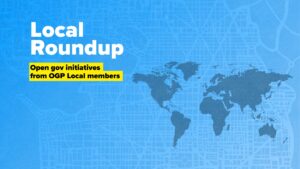Inception Report – Action plan – State of Goias, Brazil, 2024 – 2026
Overview Name of Evaluator Daniela Rosim Email [email protected] Member Name Goias, Brazil Action Plan Title Action plan - State of Goias, Brazil, 2024 - 2026 Section 1. Compliance with co-creation requirements 1.1 Does a forum exist? Yes Provide a brief…





